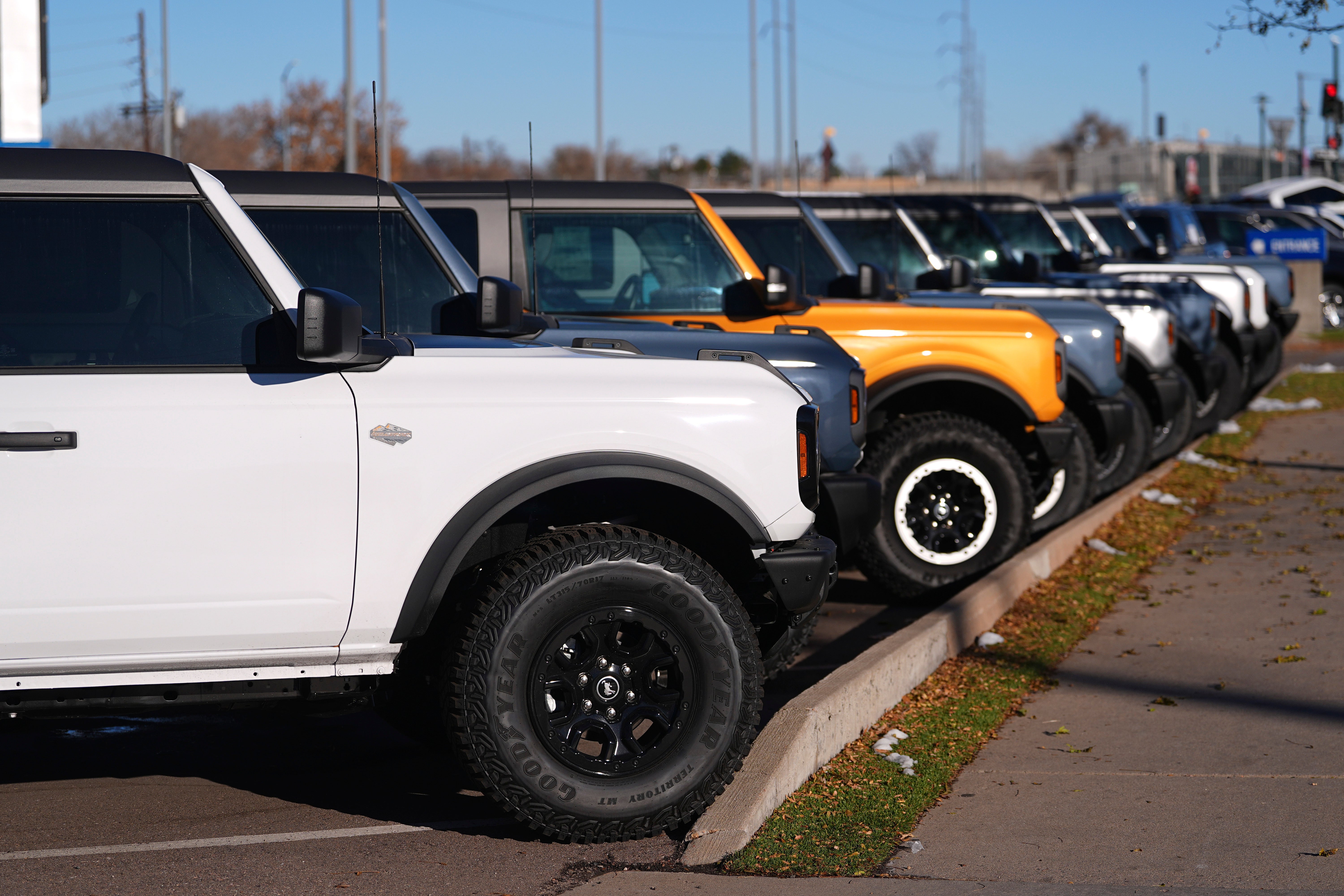US new vehicle sales rose 2.7% last year as prices and interest rates dropped a little
New vehicle sales in the U.S. rose 2.7% last year as prices and interest rates eased a bit, making SUVs, cars and trucks a little more affordable

Your support helps us to tell the story
From reproductive rights to climate change to Big Tech, The Independent is on the ground when the story is developing. Whether it's investigating the financials of Elon Musk's pro-Trump PAC or producing our latest documentary, 'The A Word', which shines a light on the American women fighting for reproductive rights, we know how important it is to parse out the facts from the messaging.
At such a critical moment in US history, we need reporters on the ground. Your donation allows us to keep sending journalists to speak to both sides of the story.
The Independent is trusted by Americans across the entire political spectrum. And unlike many other quality news outlets, we choose not to lock Americans out of our reporting and analysis with paywalls. We believe quality journalism should be available to everyone, paid for by those who can afford it.
Your support makes all the difference.New vehicle sales in the U.S. rose 2.7% last year as prices and interest rates eased a bit, making SUVs, cars and trucks a little more affordable.
Industry analysts say discounts such as rebates and low-interest financing should get even better as 2025 rolls along, with the biggest deals to be had at dealerships representing automakers that had trouble selling in 2024.
Despite high sales prices that averaged more than $47,000, automakers sold just over 16 million vehicles in the U.S. last year, Motorintelligence.com said Friday. It was the best year for sales since 2019, before the coronavirus pandemic hit. But prices were still 27% above what they were in 2019.
Electric vehicle sales rose 8.8% for the year to just under 1.3 million, beating 2023's record of 1.19 million. That’s slower growth than the 47% increase in 2023, and EVs face an uncertain future with the possibility that President-elect Donald Trump will scrap a $7,500 tax credit when he takes office later this month.
Gas-electric hybrids kept rising in popularity with just over 1.6 million sold, a 36% increase over 2023.
General Motors finished the year with the U.S. sales crown, posting a 4.3% increase for the year, its best performance since 2019. Toyota reported a 3.7% sales jump, while Ford sales rose 4.2%.
Jeep and Ram maker Stellantis, which struggled much of the year with too many high-priced vehicles on its dealer lots, saw a 14.8% sales decline. It was pushed out of fourth place and into fifth by Honda, which posted an 8.8% increase.
Nissan sales were up 2.8% for the year, barely beating Hyundai with sales up 4.8%. Kia sales rose 1.8%.
During the year, the average sales price of a vehicle fell just under 1%. Ivan Drury, director of insights for the Edmunds.com auto site, said he expects that to continue at least in the second half of the year.
Plus, the Federal Reserve expects two more interest rate cuts this year on top of three in 2024. That should help to lower monthly payments a little more, Drury said. The average auto loan rate fell from last year's peak of 7.3% in July to 6.6% in December, Drury said.
He said he doesn't think prices will change much in the first three months of this year as automakers try to clear their lots of 2024 models. “If you've got six months or more, then just wait it out,” he said. “Farther out there's the potential for better things to come.”
To get a great deal, buyers may have to switch brands to Stellantis or possibly Ford, which have more inventory on their dealer lots than Honda and Toyota, Drury said.
Even the Toyota brand, which had among the lowest inventory in the industry with enough to supply only five days' worth of sales, said it expects to increase discounts this year as supplies of vehicles increase.
"Incentive spend is probably going to go up next year for the industry and for us, because more availability will be out there,” said David Christ, vice president of Toyota North America.